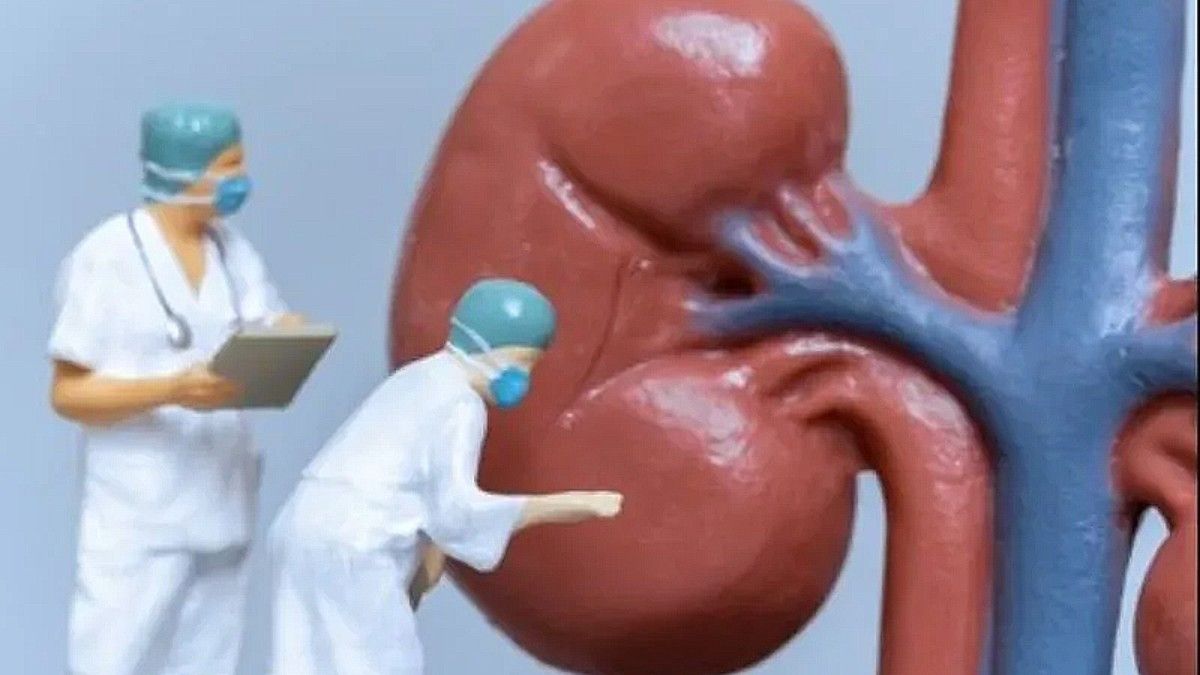JAKARTA - Spokesperson for the Ministry of Health (Kemenkes) Mohammad Syahril revealed that patients with acute progressive kidney failure will fully recover if the toxins in their bodies have disappeared.
"If the kidney failure is due to acuteness, because of toxicity. Once my body is lost, God willing, it will be completely cured," Syahril said in a virtual press conference, Monday, November 7.
Syahril explained, acute kidney failure is different from chronic kidney failure cases. Where, chronic kidney failure occurs when the kidney function decreases gradually due to kidney tissue dredging.
Meanwhile, acute kidney failure occurs when the kidney function decreases suddenly, which is thought to have been caused by contamination from ethylene glycol (EG) and dietilen glycol (DEG) compounds.
"This acute kidney gap is different from chronic kidney failure. If chronic kidney failure occurs, there have been old kidney damages so that it cannot recover 100 percent," said Syahril.
In the case development record, Syahril revealed that there were no additional cases of acute kidney failure reported as of November 6, 2022. In fact, the number of cases has not increased since last November 2.
Syahril said the accumulation of cases of progressive acute kidney disorders in Indonesia reached 324 cases spread across 28 provinces.
The eight provinces contributed the most national cases, including DKI Jakarta 83 cases, West Java 41 cases, Aceh 32 cases, East Java 25 cases, Banten 22 cases, West Sumatra 20 cases, Bali 16 cases, and North Sumatra 15 cases. Of the total 324 cases, 195 of them died, 27 were being treated, and 102 were declared cured.
Death cases based on the age group are dominated by patients aged 1 to 5 years as many as 130 out of a total of 190 cases, aged less than 10 years 27 people out of a total of 50 cases, aged 6 to 10 years 26 people out of a total of 43 cases, and 11 to 18 years 11 people out of a total of 40 cases.
According to Syahril, the decline in the rate of cases was influenced by a series of government policies, starting with the ban on the use of sirop drugs and the use of the drug that offers Fomepizole as of October 18, 2022.
In addition, on October 23, 2022, the Food and Drug Supervisory Agency (BPOM) announced a list of drugs that are safe for the public to consume.
"On October 25, 2022, we distribute the intimate Fomepizole used in hospitals outside the RSCM as well as takedown on dangerous drugs, such as the production of Afi Farma," said Syahril.
The government took a series of policies after the results of laboratory tests on patients concluded that the biggest risk factor for progressive acute kidney problems in Indonesia was triggered by Etylene Glikol (EG) and Dietilen Glikol (DEG) contamination.
"From these findings, researchers under the leadership of the Ministry of Health have a strong suspicion, namely that the biggest factor is the poisoning," he said.
The English, Chinese, Japanese, Arabic, and French versions are automatically generated by the AI. So there may still be inaccuracies in translating, please always see Indonesian as our main language. (system supported by DigitalSiber.id)













